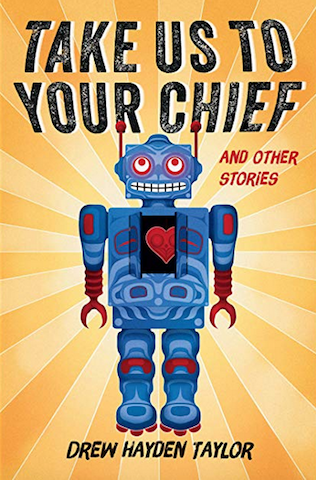The Forgetters is a story collection by Greg Sarris, chairman of the Federated Indians of the Graton Rancheria (Southern Pomo and Coast Miwok). This collection is a companion to his earlier story cycle How a Mountain Was Made: Stories. Both are centered on Sonoma Mountain, California. Both are framed by the crow sisters, Question Woman and Answer Woman sharing stories. I highly recommend both as works attempting to share Indigenous knowledge with both Indigenous and non-Indigenous people who have "forgotten the stories."
How a Mountain Was Made shares a set of stories inspired by traditional stories from the time when animals were people. The Forgetters foregrounds recent historical memory, with most stories set between the 1860s and 1960s. While How a Mountain Was Made exists in a sort of mystical reality (for want of a better expression), The Forgetters delves into the details of its historical setting, often invoking the dispossession, impoverishment (literally and culturally), and exploitation of Indigenous people reduced to working as day laborers or servants for the white settlers who have stolen and mangled their ancestral lands.
The story structure, however, echoes the earlier book, providing morally didactic stories on the overarching theme of people "forgetting" the lessons of how to live well with each other and the land. Individual stories take up themes such as greed, envy, ostracism, and subtler forgettings like lost humility and failure to comprehend another's needs (even in a very good, moderate people). Though centered on Indigenous experience, the text explicitly encompasses non-Indigenous people too, and they occasionally appear as protagonists.
The final story ventures into Indigenous futurism, depicting how stories continue on a Sonoma Mountain ravaged by climate catastrophe.
For me personally, the story that moved me most was (semi-coincidentally?) the one that centers a protagonist I take to be white (due to the absence to racially marked experience). The story concerns being a parent of an older adopted child, and for me as such a parent, it rang very true and brought (good) tears to my eyes.
How a Mountain Was Made shares a set of stories inspired by traditional stories from the time when animals were people. The Forgetters foregrounds recent historical memory, with most stories set between the 1860s and 1960s. While How a Mountain Was Made exists in a sort of mystical reality (for want of a better expression), The Forgetters delves into the details of its historical setting, often invoking the dispossession, impoverishment (literally and culturally), and exploitation of Indigenous people reduced to working as day laborers or servants for the white settlers who have stolen and mangled their ancestral lands.
The story structure, however, echoes the earlier book, providing morally didactic stories on the overarching theme of people "forgetting" the lessons of how to live well with each other and the land. Individual stories take up themes such as greed, envy, ostracism, and subtler forgettings like lost humility and failure to comprehend another's needs (even in a very good, moderate people). Though centered on Indigenous experience, the text explicitly encompasses non-Indigenous people too, and they occasionally appear as protagonists.
The final story ventures into Indigenous futurism, depicting how stories continue on a Sonoma Mountain ravaged by climate catastrophe.
For me personally, the story that moved me most was (semi-coincidentally?) the one that centers a protagonist I take to be white (due to the absence to racially marked experience). The story concerns being a parent of an older adopted child, and for me as such a parent, it rang very true and brought (good) tears to my eyes.
